Twilight tm-6 Read online
Page 5
Sighing, I looked down at the hundreds of career options in front of me. Jesse was dead, but even he knew what he'd wanted to be . . . would have been, if he hadn't died. Or not been, considering what he'd said about his father's expectations for him.
And here I was, with every advantage in the world, and all I could think that I wanted to be when I grew up was . . .
Well, with Jesse.
"Twenty more minutes." Mr. Walden's voice boomed out across the classroom, startling me from my thoughts. I found that my gaze had become fixed on the sea less than a mile from the Mission and viewable through most of the school's classroom windows . . . to the detriment of students like me. I hadn't grown up, like most of my classmates, around the sea. It was a constant source of wonder and interest to me.
Kind of, I realized, like Jesse's fascination with modern science.
Only unlike Jesse, I actually had a chance to do something with my interest.
"Ten more minutes," Mr.Walden announced, startling me again.
Ten more minutes. I looked down at my answer sheet, which was half empty. At the same time, I noticed CeeCee shooting me an anxious look from her desk beside mine. She nodded to the sheet. Get to work, her violet eyes urged me.
I picked up my pencil and began to haphazardly fill in bubbles. I didn't care what answers I chose. Because, truthfully, I didn't care about my future. Without Jesse, I had no future. Of course, with him, I had no future, either. What was he going to do, anyway? Follow me to college? To my first job? My first apartment?
Yeah. That'll happen.
Paul was right. I'm so stupid. Stupid to have fallen in love with a ghost. Stupid to think we had any kind of future together. Stupid.
"Time's up." Mr. Walden pulled his feet from the top of his desk. "Lay your pencils down, please. Then pass your answer sheets to the front."
I wasn't all that surprised when Paul came up to me after Mr. Walden had dismissed us for lunch. "That was pointless," he said in a low voice, as we made our way toward our lockers. "I mean, we have our career paths cut out for us, don't we?"
"Well, you can't really make a living doing what we do," I said, then remembered, too late, that Paul certainly seemed to have managed to.
"An honest living," I amended.
But instead of feeling ashamed of himself, as I'd meant him to, Paul just grinned.
"That's why I've decided on a career in the legal profession," he said. "Your dad was a lawyer, right?"
I nodded. I don't like talking about my dad with Paul. Because my dad was everything that was good. And Paul is everything that . . . isn't.
"Yeah, that's what I thought," Paul went on. "Nothing's black and white with the law. It's all sort of gray. So long as you can find a precedent."
I didn't say anything. I could easily see Paul as a lawyer. Not a lawyer like my dad had been, a public defender, but the kind of lawyer who'd defend rich celebrities, people who thought they were above the law . . . and because they had limitless funds to pay for their defense, they were above it, in a way.
"You, on the other hand," Paul said. "I think you're destined for a career in the social services. You're a natural-born do-gooder."
"Yeah," I said, as I stopped beside my locker. "Maybe I'll follow in Father D's footsteps, and become a nun."
"Now that," Paul said, leaning against the locker next to mine, "would just be a waste. I was thinking more along the lines of a social worker. Or a therapist. You're very good, you know, at taking on other people's problems."
Wasn't that the truth? It was the reason I was so bleary-eyed and tired today. Because after I'd left Jesse the night before, I'd driven home and gone up to bed . . . only not to sleep. Instead, I'd lain awake, blinking at the ceiling and mulling over what Jesse had told me. Not about Paul, but about what Paul had made me read aloud earlier that day: The shifter's abilities didn't merely include communication with the dead and teleportation between their world and our own, but the ability to travel at will throughout the fourth dimension as well.
The fourth dimension. Time.
The very word caused the hairs on my arms to stand up, even though it was another typically beautiful autumn day in Carmel and not cold at all. Could it really be true? Was such a thing even possible? Could mediators - or shifters, as Paul and his grandfather insisted on calling us - travel through time as well as between the realms of the living and the dead?
And if - a big if - it were true, what on earth did it mean?
More important, why had Paul been so intent on making sure I knew about it?
"You look strung out," Paul observed as I stowed my books away and reached for the paper bag containing the lunch my stepfather had made me: tandoori chicken salad. "What's the matter? Trouble sleeping?"
"You should know," I said, glaring at him.
"What'd I do?" he asked, sounding genuinely surprised.
I don't know if it was my exhaustion, or the fact that that the career aptitude test had got me thinking about my future . . . my future and Jesse's. Suddenly, I was just very tired of Paul and his games. And I decided to call him on the latest one.
"The fourth dimension," I reminded him. "Time travel?"
He just grinned, however. "Oh, good, you figured it out. Took you long enough."
"You really think shifters are capable of time travel?" I asked.
"I don't think so," Paul said. "I know so."
Again, I felt a chill when I shouldn't have. We were standing in the shade of the breezeway, it was true, but just a few feet away in the Mission courtyard, the sun was blazing down. Hummingbirds flitted from hibiscus blossom to hibiscus blossom. Tourists snapped away with their digital cameras.
So what was up with the goose bumps?
"Why?" I demanded, my throat suddenly dry. "Because you've done it?"
"Not yet," he said, casually. "But I will. Soon."
"Yeah," I said, fear making me sarcastic. "Well, maybe you could travel back to the night you stole Mrs. Gutierrez's money and not do it this time."
"God, would you let it go already?" He shook his head. "It was two thousand lousy bucks. You act like it was two million."
"Hey, Paul." Kelly Prescott broke away from her clique - the Dolce and Gabbana Nazis as CeeCee had taken to calling them - and sauntered over, fluttering her heavily mascaraed eyelashes. "You coming to lunch?"
"In a minute," Paul said to her . . . not very nicely, considering she was his date for next weekend's dance. Kelly, though stung, nevertheless pulled herself together enough to send me a withering glance before heading for the yard where we dined daily, al fresco.
"So I don't get it." I stared at him. "What if we can travel through time? Big deal. It's not like we can change anything once we get there."
"Why?" Paul's blue eyes were curious. "Because Doc from Back to the Future said so?"
"Because you can't . . . you can't mess up the natural order of things," I said.
"Why not? Isn't that what you do every day when you mediate? Aren't you interfering with the natural order of things by sending spirits off to their just reward?"
"That's different," I said.
"How so?"
"Because those people are already dead! They can't do anything that might change the course of history."
"Like Mrs. Gutierrez and her two thousand dollars?" Paul's glance was shrewd. "You think if you'd given it to her son, it wouldn't have changed the course of history? Even in some small way?"
"But that's different than entering another dimension to change something that already happened. That's just . . . wrong"
"Is it, Suze?" A corner of Paul's mouth lifted. "I don't think so. And you know what? I think this time, your boy Jesse is going to agree. With me."
And suddenly, it seemed to get even colder than ever under that breezeway.
Chapter six
Please be home, please be home, please be home, I prayed as I waited for someone to answer the doorbell. Please please please please . . .
&n
bsp; I don't know if someone heard my prayer, or if it was just that invalid archeologists don't get out that much. In any case, Dr. Slaski's attendant answered the front door, recognition dawning when he saw that it was me who'd been ringing the bell with so much urgency.
"Oh hi, Susan," he said, getting the name wrong, but the face that went with it right. Sort of. "You looking for Paul? Because far as I know, he's still in school - "
"I know he's still at school," I said, stepping hurriedly inside the Slaters' foyer, before the attendant could close the door. "I'm not here to see him. I stopped by to see his grandfather, if that's all right."
"His grandfather?" The attendant looked surprised. And why shouldn't he? For all he knew, his patient hadn't had a lucid conversation with anyone in years.
Except that he had. And it had only been a few months ago. With me.
"You know, Susan, Paul's grandpa isn't . . . He's not real well," the assistant said slowly. "We don't like to talk about it in front of him, but his last round of tests . . . Well, they didn't look so good. In fact, the doctors aren't giving him all that much longer to live . . ."
"I just need to ask him a question," I said. "Just one little question. It'll only take a second."
"But . . ." The attendant, a young guy who, judging from his sun-bleached dreads, probably used whatever spare time he got to hit the waves, scratched his chin. "I mean, he can't . . . he doesn't really talk all that much anymore. The Alzheimer's, you know . . ."
"Can I just try?" I asked, not caring that I sounded like a whacko. I was that desperate. Desperate for answers that I knew only one person on earth could give me. And that person was just right upstairs. "Please? I mean, it couldn't hurt, could it?"
"No," the attendant said slowly. "No, I guess it couldn't hurt."
"Great," I said, slipping past him and starting up the stairs two at a time. "I'll just be a couple of minutes. You won't mind leaving us alone, will you? I'll call you if he looks like he might need you."
The attendant, closing the front door in a distracted sort of way, went, "Okay. I guess. But . . . shouldn't you be in school?"
"It's lunchtime," I informed him cheerfully, as I made my way up the stairs and then down the hall toward Dr. Slaski's room.
I wasn't lying, either. It was lunchtime. The fact that we weren't technically supposed to leave school grounds at lunch? Well, I didn't feel that was important to mention. I was less worried about facing the wrath of Sister Ernestine when she found out I was skipping school than I was about explaining to my stepbrother Brad why I'd so desperately needed the keys to the Land Rover. Just because Brad had happened to get his driver's license about five seconds before I'd gotten mine (well, okay, a few weeks before I'd gotten mine, actually), he seems to feel that the ancient Land Rover, which is supposed to be the "kids' car," belongs solely to him, and that only he's allowed to ferry the two of us, plus his little brother, David, to and from school every day.
I'd had to resort to using the words "feminine hygiene products" and "glove compartment" just to get him to surrender the keys. I had no idea what he was going to do when I didn't return before the end of lunch and he discovered the car was gone. Narc on me, doubtlessly. It seemed to be his one joy in life.
Sadly, I never seem able to return the favor, thanks to Brad generally having some kind of goods on me.
In any case, I wasn't going to squander what precious little time I had wondering what Brad was going to say about my taking the car. Instead, I hurried into Paul's grandfather's bedroom.
As usual, the Game Show Network was on. The attendant had parked Dr. Slaski's wheelchair in front of the plasma screen television. Dr. Slaski himself, however, appeared to be paying no attention whatsoever to Bob Barker. Instead, he was staring fixedly at a spot in the center of the highly polished tile floor.
I wasn't fooled by this, however.
"Dr. Slaski?" I picked up the remote and turned the TV volume down, then hurried to the doctor's side. "Dr. Slaski, it's me, Suze. Paul's friend, Suze? I need to talk to you for a minute."
Paul's grandfather didn't respond. Unless you call drooling a response.
"Dr. Slaski," I said, pulling up a chair so that I could sit closer to his ear. I didn't want the attendant to overhear our discussion, so I was trying to keep my voice low. "Dr. Slaski, your nurse isn't here and neither is Paul. It's just the two of us. I need to talk to you about something Paul's been telling me. About, er, mediators. It's important."
As soon as he heard that neither Paul nor his attendant was nearby, a change seemed to come over Dr. Slaski. He straightened up in his chair, lifting his head so he could fix me with a rheumy-eyed stare. The drooling stopped right away.
"Oh," he said when he saw it was me. He didn't exactly look thrilled. "You again."
I didn't think that was completely fair, seeing as how the last time the two of us had spoken, he had sought me out . . . sought me out to deliver a cryptic warning about his own grandson, whom he'd equated to the devil, no less.
But I decided to let that slide.
"Yes, it's me, Dr. Slaski," I said. "Suze. Listen. About Paul."
"What's that little pisser been up to now?"
Clearly there is very little love lost between Dr. Slaski and his grandson.
"Nothing," I said. "Yet. At least, so far as I can tell. It's what he says he can do."
"What's that, then?" Dr. Slaski asked. "And this better be good. Family Feud comes on in five minutes."
Good God. Was I, I wondered, going to end up wheelchair bound and addicted to game shows when I was Dr. Slaski's age? Because Dr. Slaski - or Mr. Slater, as Paul wanted everyone to think of him - is also a mediator, one who'd gone to the ends of the earth looking to find answers about his unusual talent. Apparently, he'd found what he was looking for in the tombs of ancient Egypt.
Problem is, nobody believed him. Not about the existence of a race of people whose sole duty it was to guide the spirits of the dead to their ultimate destinations, and certainly not that he, Dr. Slaski, was one of them. The old man's many writings on the subject, most of them self-published, went ignored by the scientific and academic communities, and were now gathering dust in plastic bins beneath his grandson's bed.
Worse, Dr. Slaski's own family seem to be trying to sweep him under the bed, as well, Paul's father even having gone so far as to change his name to avoid being associated with the old man.
And what had Dr. Slaski gotten for all his efforts? A terminal illness and his grandson, Paul, for company. The illness, or so Dr. Slaski claimed, had been brought on by spending too much time in the "shadowland" - that way station between this world and the next. And Paul?
Well, he had brought Paul on all by himself.
I guess he had a reason to feel bitterly toward the human race. But why he felt that way toward Paul, I was only just learning.
I tried to start out slowly, so he'd be sure to understand.
"Paul says mediators - "
"Shifters." Dr. Slaski insisted people like him and Paul and me are more properly called shifters, for our (in my case, newly discovered) ability to shift between the dimensions of the living and the dead. "Shifters, girl, I told you before. Don't make me say it again."
"Shifters," I corrected myself. "Paul says that shifters have the ability to time travel."
"Indeed," Dr. Slaski said. "What of it?"
I gaped at him. I couldn't help it. If he'd hit me in the back of the head with a pinata stick, I could not have been more surprised. "You . . . you knew about this?"
"Of course I know about it," Dr. Slaski said acidly. "Who do you think wrote the paper that gave that fool grandson of mine the idea?"
This is what I got for not paying more attention during my mediator sessions with Paul.
"But why didn't you tell me?"
Dr. Slaski looked at me very sarcastically. "You didn't ask," he said.
I sat there like a lump staring at him. I couldn't believe it. All this time . . . all this t
ime I'd had another skill I'd known nothing about. But what would I have ever needed the ability to time travel for, anyway? I guess there were a few bad hair days I wouldn't have minded going back and fixing, but other than that. . . .
Then, like a bolt of lightning, it hit me.
My dad. I could go back through time and save my dad.
No. No, it didn't work that way. It couldn't. Because if it could . . . if it could. . . .
Then everything would be different.
Everything.
Dr. Slaski coughed, hard. I shook myself and touched his shoulder.
"Dr. Slaski? Are you all right?"
"What do you think?" Dr. Slaski demanded, not very graciously. "I've got six months to live. Maybe less, if those damned doctors have their way and keep bleeding the life out of me. You think I'm all right?"
"I . . ." It was selfish of me, I knew, but I didn't have time to listen to his health problems. I needed to know more about this new power he - and possibly I - had.
"How?" I demanded eagerly. "How do you do it? Travel through time, I mean."
Dr. Slaski glanced at the TV. Fortunately the credits for The Price Is Right were still rolling. Family Feud hadn't started yet.
"It's easy," he said. "If my idiot grandson can figure it out, any moron can."
We didn't have much time. Family Feud was going to start at any second.
"How?" I asked him again. "How?"
"You need something," the doctor said with exaggerated patience, like he was talking to a five-year-old. "Something of the time you want to go to. To anchor you to it."
I thought of a time-travel movie I had seen. "Like a coin?" I asked.
"A coin would do it," Dr. Slaski said, though he looked skeptical. "Of course, you'd need to use a coin that had once been owned by a specific person who existed in the time you want to go to, and who'd once actually stood where you're standing. And you need to pick a spot you can get back to without shifting onto some innocent bystander."

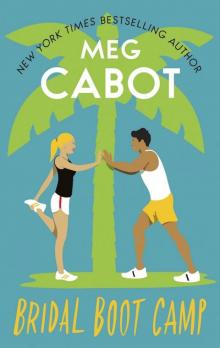 Bridal Boot Camp
Bridal Boot Camp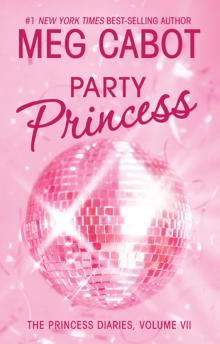 Party Princess
Party Princess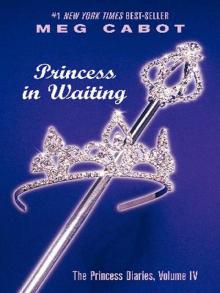 Princess in Waiting
Princess in Waiting Being Nikki
Being Nikki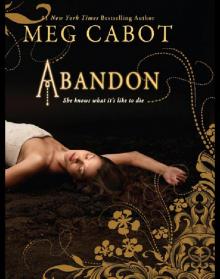 Abandon
Abandon Princess on the Brink
Princess on the Brink Darkest Hour
Darkest Hour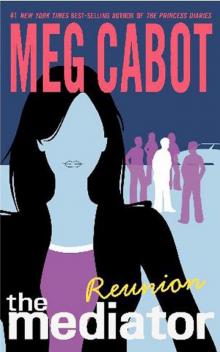 Reunion
Reunion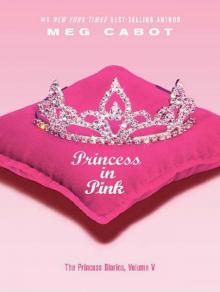 Princess in Pink
Princess in Pink Sweet Sixteen Princess
Sweet Sixteen Princess The Princess Diaries
The Princess Diaries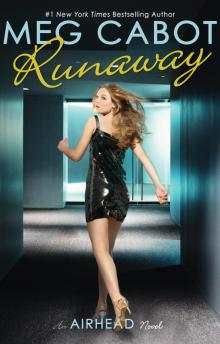 Airhead
Airhead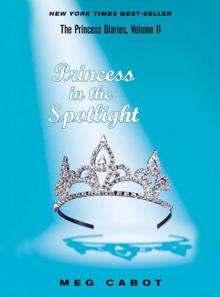 Princess in the Spotlight
Princess in the Spotlight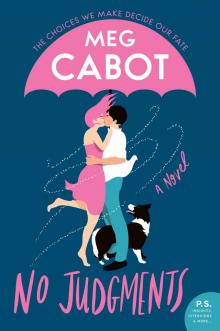 No Judgments
No Judgments All-American Girl
All-American Girl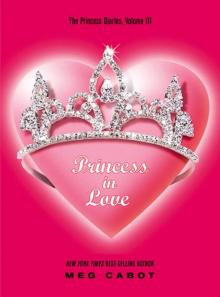 Princess in Love
Princess in Love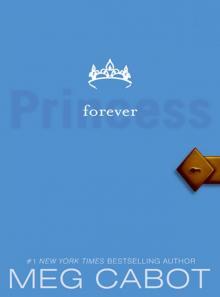 Forever Princess
Forever Princess Haunted
Haunted Shadowland
Shadowland Twilight
Twilight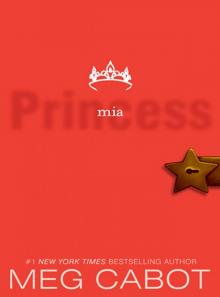 Princess Mia
Princess Mia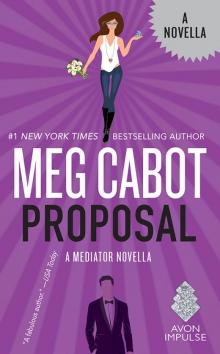 Proposal
Proposal Remembrance
Remembrance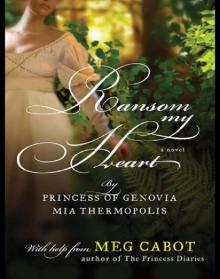 Ransom My Heart
Ransom My Heart Underworld
Underworld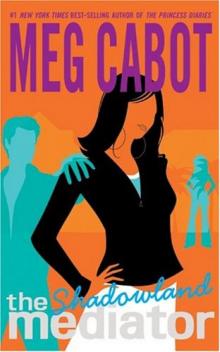 Shadowland tm-1
Shadowland tm-1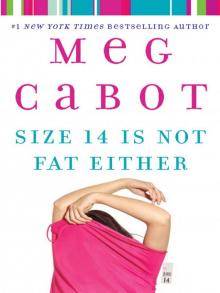 Size 14 Is Not Fat Either
Size 14 Is Not Fat Either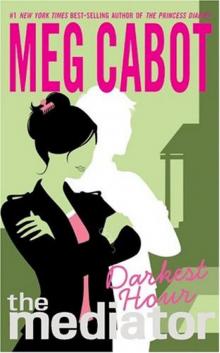 Darkest Hour tm-4
Darkest Hour tm-4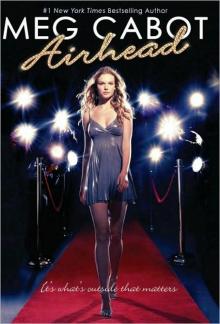 Airhead a-1
Airhead a-1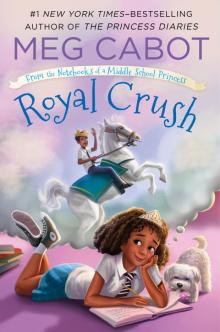 Royal Crush
Royal Crush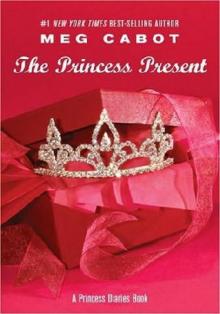 The Princess Present (princess diaries)
The Princess Present (princess diaries)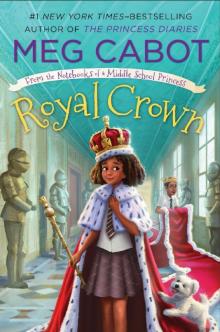 Royal Crown
Royal Crown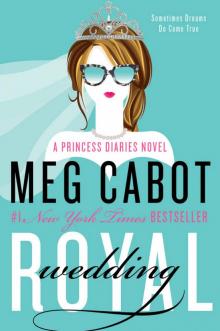 Royal Wedding: A Princess Diaries Novel (The Princess Diaries Book 11)
Royal Wedding: A Princess Diaries Novel (The Princess Diaries Book 11)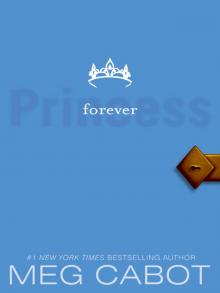 Princess Diaries, Vol. X: Forever Princess
Princess Diaries, Vol. X: Forever Princess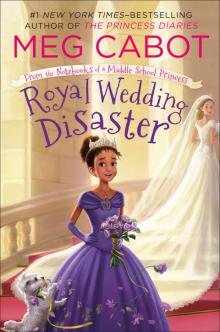 Royal Wedding Disaster
Royal Wedding Disaster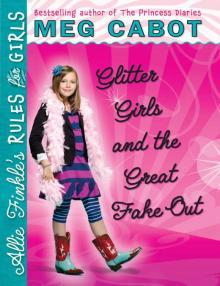 Allie Finkle's Rules for Girls: Glitter Girls and the Great Fake Out
Allie Finkle's Rules for Girls: Glitter Girls and the Great Fake Out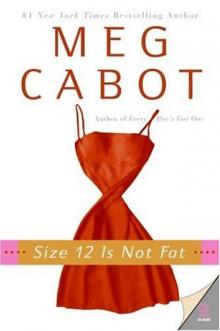 Size 12 Is Not Fat hwm-1
Size 12 Is Not Fat hwm-1 Princess on the Brink pd-8
Princess on the Brink pd-8 The New Girl
The New Girl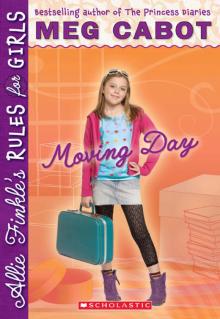 Allie Finkle's Rules for Girls: Moving Day
Allie Finkle's Rules for Girls: Moving Day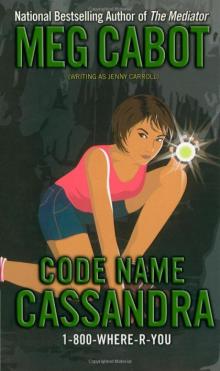 Code Name Cassandra
Code Name Cassandra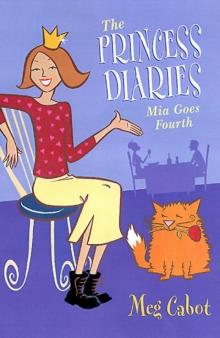 Mia Goes Fourth pd-4
Mia Goes Fourth pd-4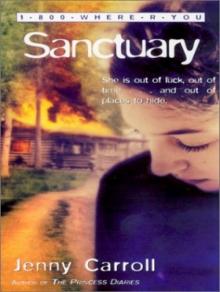 Sanctuary 1-4
Sanctuary 1-4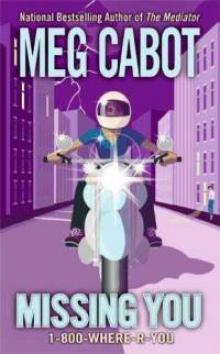 Missing You 1-5
Missing You 1-5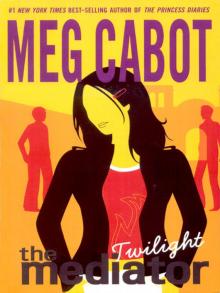 The Mediator 6: Twilight
The Mediator 6: Twilight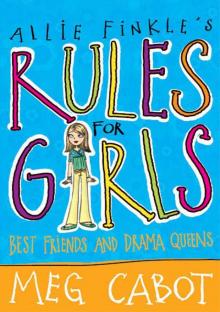 Allie Finkle's Rules for Girls: Best Friends and Drama Queens
Allie Finkle's Rules for Girls: Best Friends and Drama Queens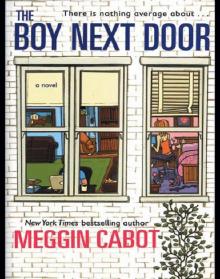 The Boy Next Door
The Boy Next Door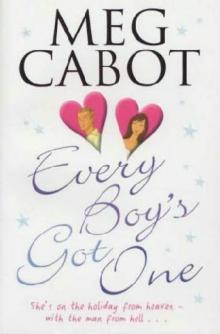 Every Boy's Got One
Every Boy's Got One Princess Mia pd-9
Princess Mia pd-9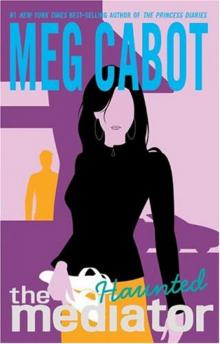 Haunted tm-5
Haunted tm-5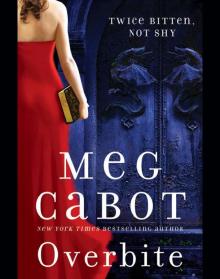 Overbite
Overbite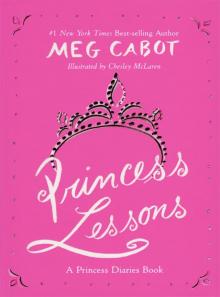 Princess Lessons
Princess Lessons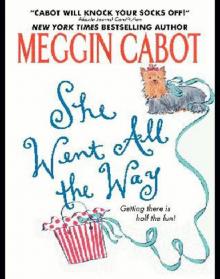 She Went All the Way
She Went All the Way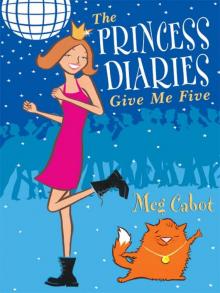 Give Me Five pd-5
Give Me Five pd-5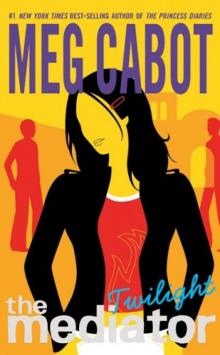 Twilight tm-6
Twilight tm-6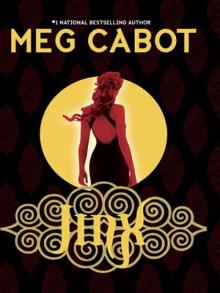 Jinx
Jinx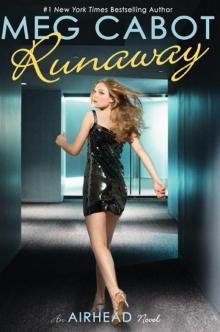 Runaway (Airhead #3)
Runaway (Airhead #3)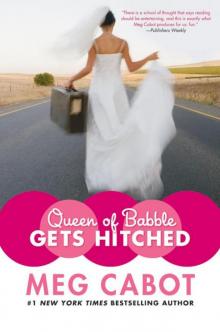 Queen of Babble Gets Hitched qob-3
Queen of Babble Gets Hitched qob-3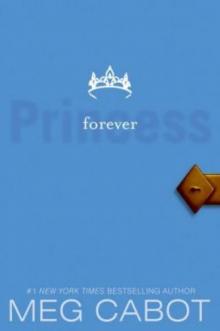 Forever Princess pd-10
Forever Princess pd-10 Queen of Babble
Queen of Babble Boy Meets Girl b-3
Boy Meets Girl b-3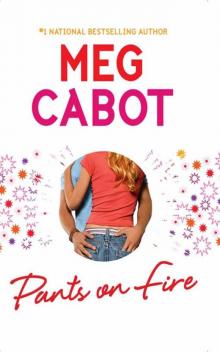 Pants on Fire
Pants on Fire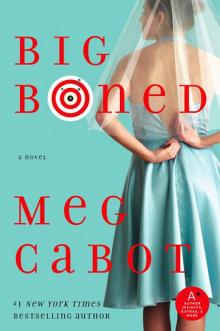 Big Boned ху-3
Big Boned ху-3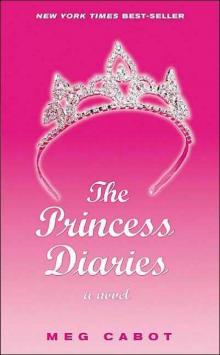 Princess' Diaries pd-1
Princess' Diaries pd-1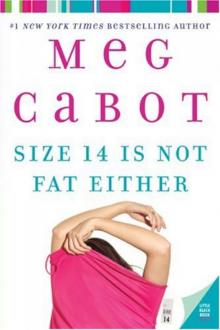 Size 14 Is Not Fat Either hwm-2
Size 14 Is Not Fat Either hwm-2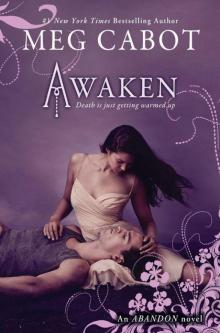 Awaken a-3
Awaken a-3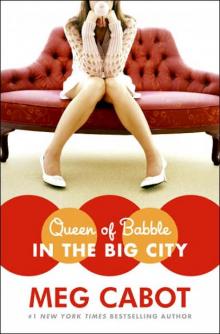 Queen Of Babble: In The Big City qob-2
Queen Of Babble: In The Big City qob-2 Nicola and the Viscount
Nicola and the Viscount Allie Finkle's Rules for Girls: Stage Fright
Allie Finkle's Rules for Girls: Stage Fright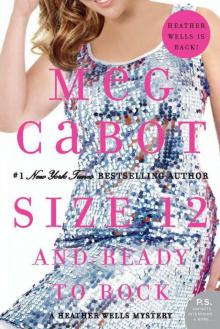 Size 12 and Ready to Rock
Size 12 and Ready to Rock Perfect Princess
Perfect Princess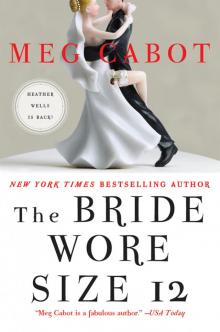 The Bride Wore Size 12
The Bride Wore Size 12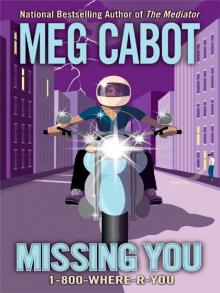 1-800-Where-R-You: Missing You
1-800-Where-R-You: Missing You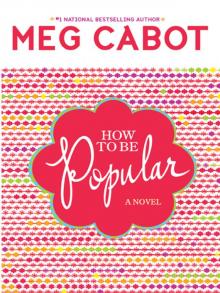 How to Be Popular
How to Be Popular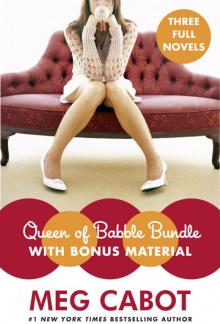 Queen of Babble Bundle with Bonus Material
Queen of Babble Bundle with Bonus Material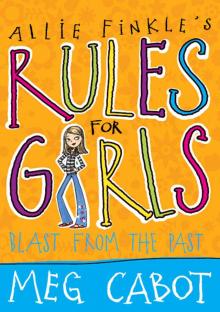 Allie Finkle's Rules for Girls: Blast from the Past
Allie Finkle's Rules for Girls: Blast from the Past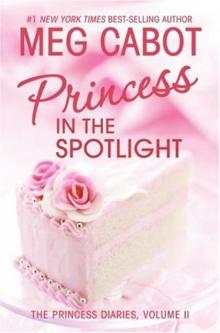 Princess in the Spotlight pd-2
Princess in the Spotlight pd-2 Ready or Not
Ready or Not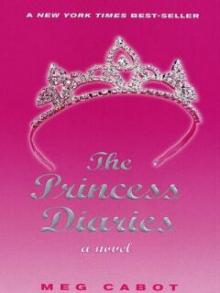 The Princess Diaries I
The Princess Diaries I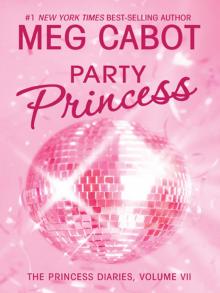 Party Princess pd-7
Party Princess pd-7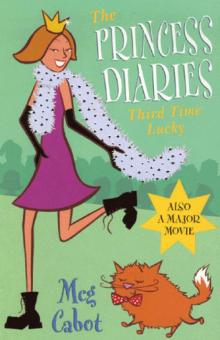 Third Time Lucky pd-3
Third Time Lucky pd-3 Stage Fright
Stage Fright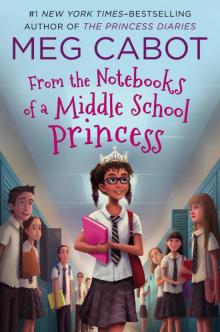 From the Notebooks of a Middle School Princess
From the Notebooks of a Middle School Princess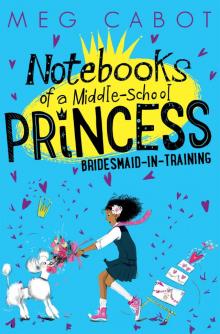 Notebooks of a Middle-School Princess Bridesmaid-in-Training
Notebooks of a Middle-School Princess Bridesmaid-in-Training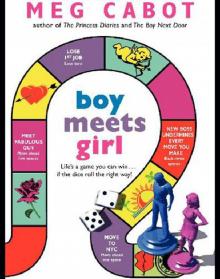 Boy Meets Girl
Boy Meets Girl Missing You
Missing You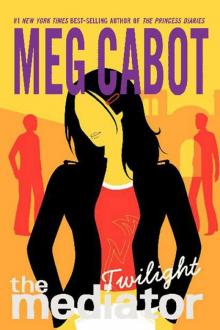 The Twilight
The Twilight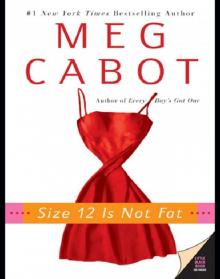 Size 12 Is Not Fat
Size 12 Is Not Fat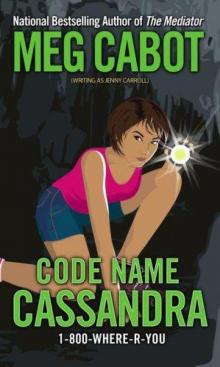 Code Name Cassandra 1-2
Code Name Cassandra 1-2 Valentine Princess
Valentine Princess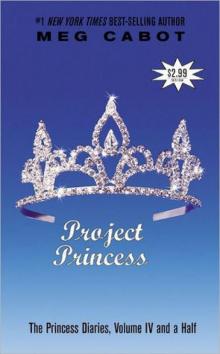 Project Princess
Project Princess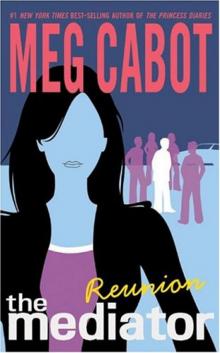 Reunion tm-3
Reunion tm-3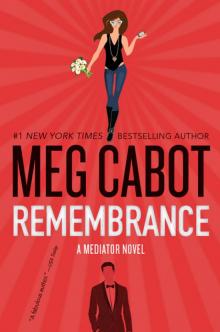 Remembrance: A Mediator Novel
Remembrance: A Mediator Novel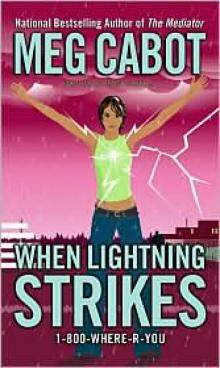 When Lightning Strikes 1-1
When Lightning Strikes 1-1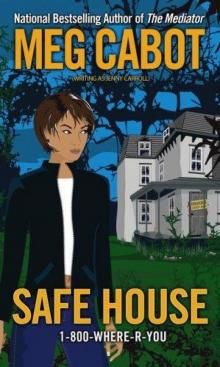 Safe House 1-3
Safe House 1-3 Teen Idol
Teen Idol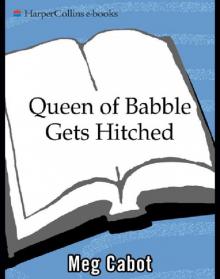 Queen of Babble Gets Hitched
Queen of Babble Gets Hitched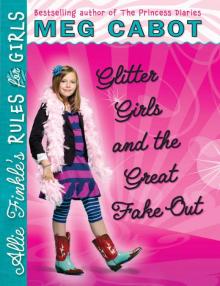 Glitter Girls and the Great Fake Out
Glitter Girls and the Great Fake Out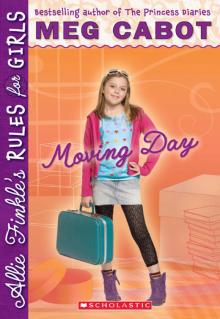 Moving Day
Moving Day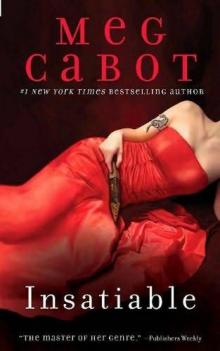 Insatiable
Insatiable All American Girl
All American Girl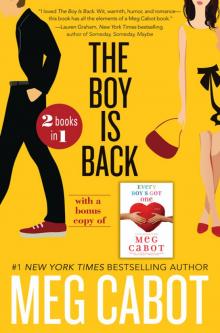 The Boy Is Back + Every Boy's Got One Bundle
The Boy Is Back + Every Boy's Got One Bundle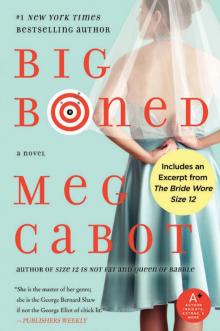 Big Boned
Big Boned Awaken
Awaken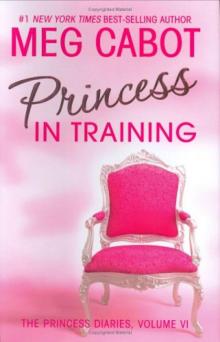 Princess in Training pd-6
Princess in Training pd-6